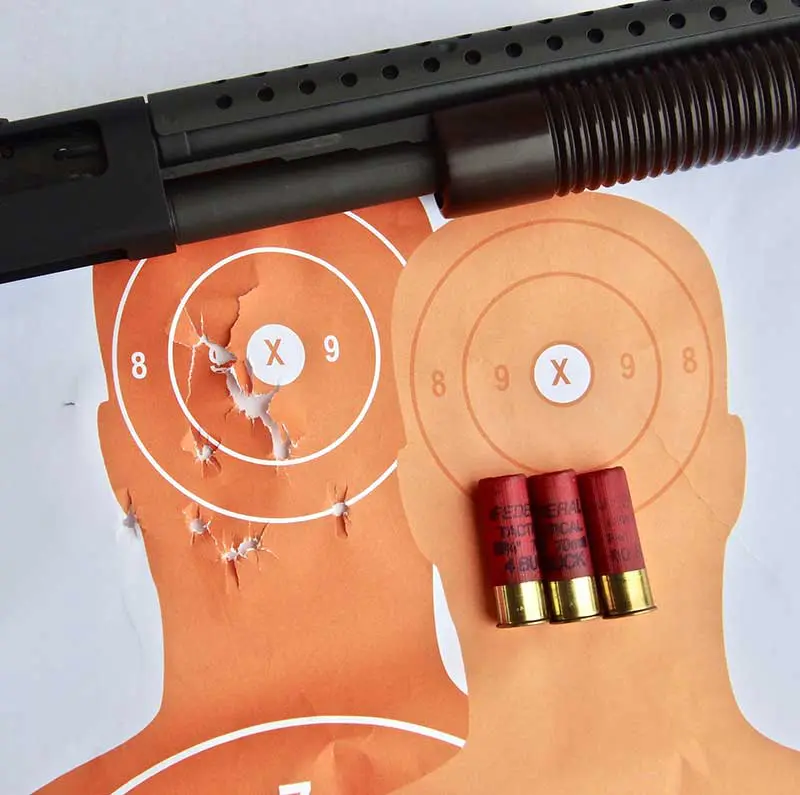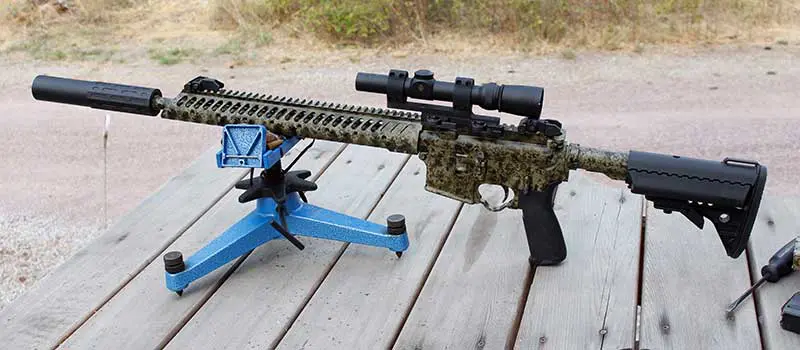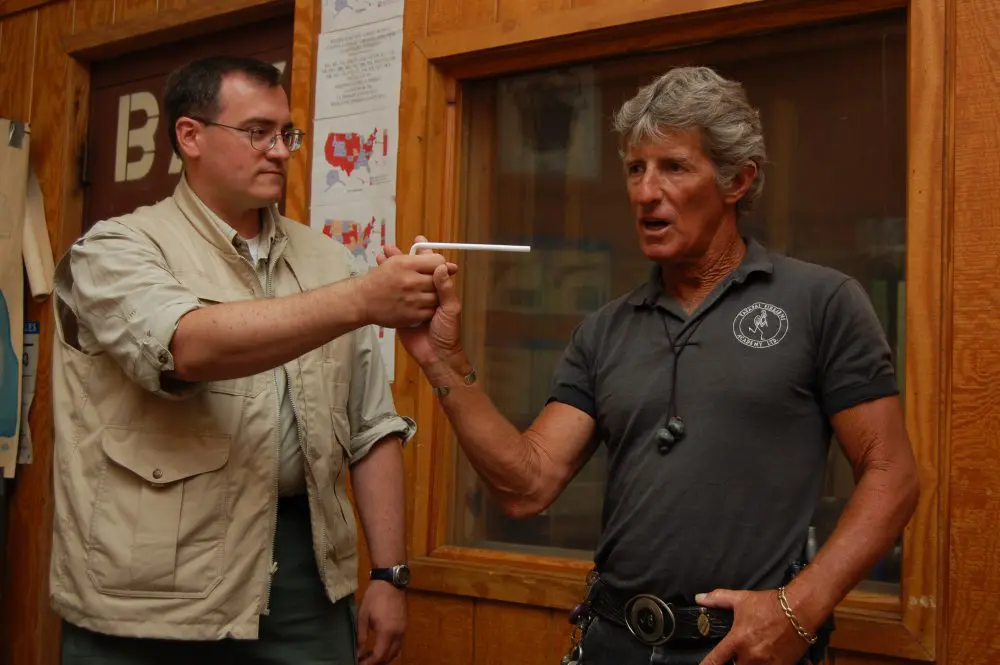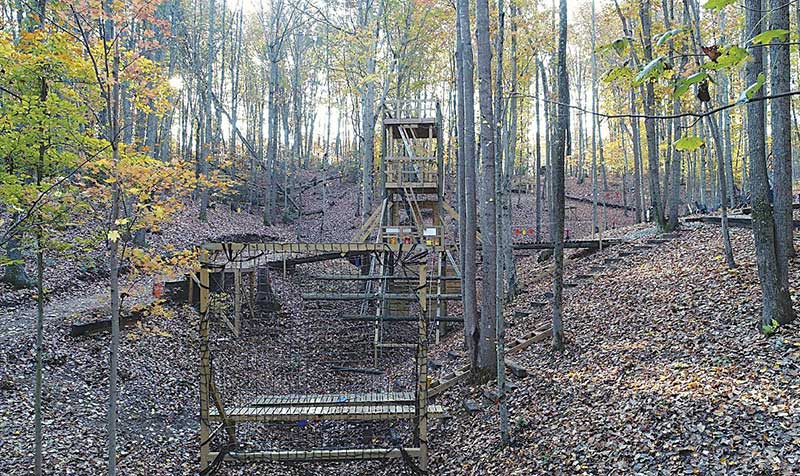
Hill fighting in Vietnam, especially for the majority of us “flatlanders,” was among the toughest terrain to trade bullets on. The enemy not only enjoys the high ground, but can be dug in and almost impervious to an array of supporting arms. Given lots of vegetation, the enemy is almost impossible to spot until you are right on top of him.
The most exhausting training I experienced in Army Ranger School was a hill assault that involved several withdrawals followed by counter attacks. Fighting uphill is arduous and the enemy has the advantage.
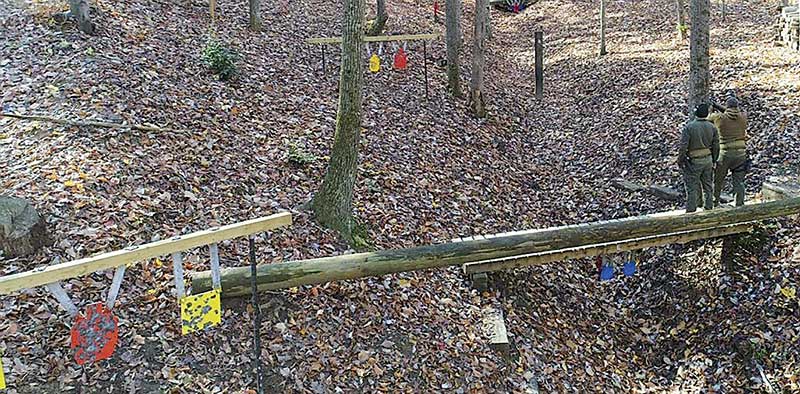
Hidden within the rolling hills of Stafford County, Virginia is a unique training venue that will test the tactics, fitness, phobias, and equipment of any tactical team, as well as individuals or groups, beginners or self-defense practitioners who want to experience the challenges of obstacles, rough terrain, ropes, and a small army of unknown-distance reactive targets.
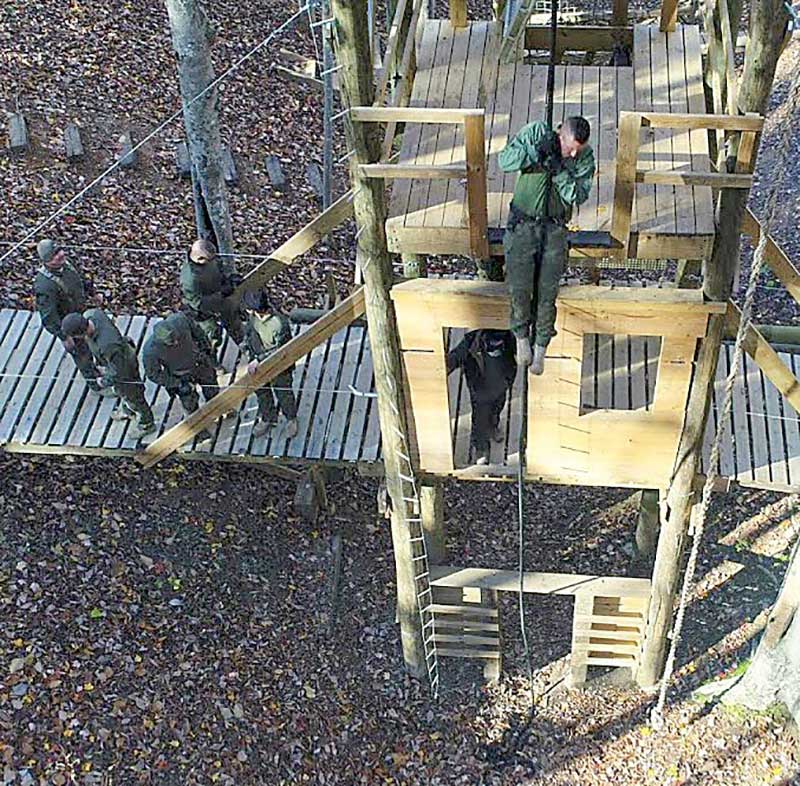
Although small-arms range training has been running for five years, the Combatics (Combat Tactics) venue has been open for the last two years. The facility is the brainchild of former FBI SWAT team leader and counter-terrorism agent Tim Clemente. He, his family, and business partner have a ton of time and sweat equity invested in the complex, and it took several months to construct the assault course. Everything is commercial grade and professionally built.
The Combatics motto, “Prepare To Prevail,” is more than just a tagline. The Combatics instructors’ “been there, done that” experience and their ability to impart information and skills mean they can prepare students not only to prevail, but also to dominate a violent confrontation.
MULTIPLE-USE ASSAULT COURSE
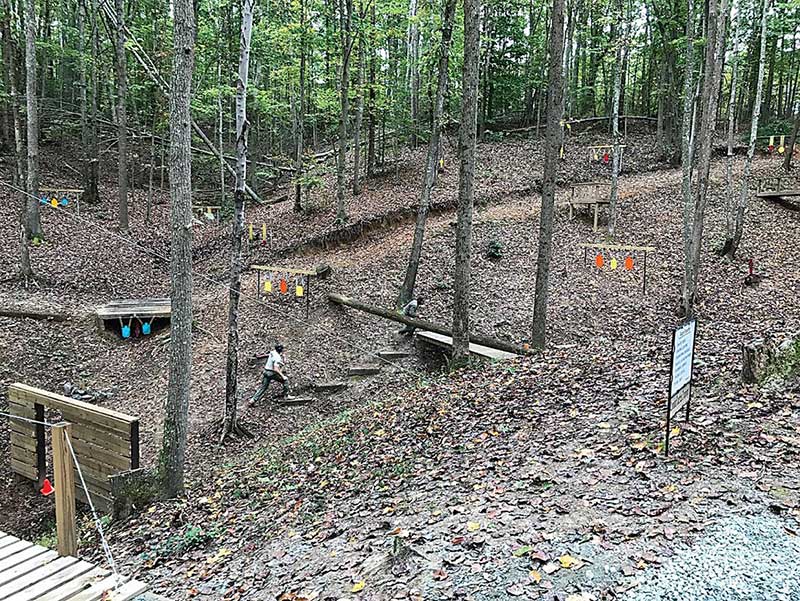
The multi-faceted facility is comprised of reactive targets made of AR500 steel painted red for threats and blue for friendlies (as in the “thin blue line”). Combatics can also accommodate sniper teams. Several scenarios require “threading the needle” or precision hostage rescue fire, and the lengthy uphill, rough-terrain course is filled with manmade and natural obstacles and cover.
Employing cover is emphasized. Few engagements are conducted in the open, except with some shooting on the move while rushing to the next position that affords protection from hostile fire. Most of the training is conducted with pistol, carbine, and occasionally shotgun, but a transition to slugs is usually necessary for targets beyond 25 yards for improved cylinder-bore police smoothbores.
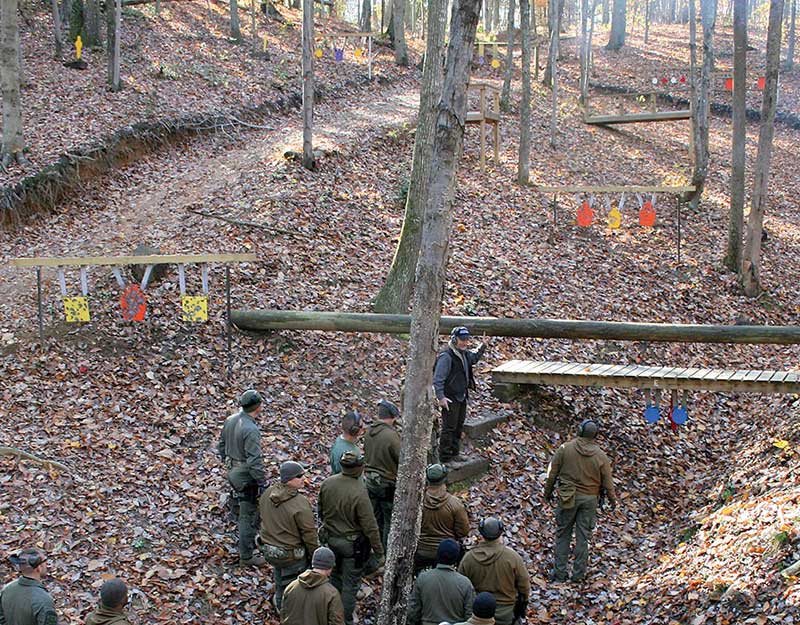
Snipers can provide elevated overwatches and can suppress threats at longer ranges while assault forces fire and maneuver uphill.
Tim explained that his objective in creating this unique combat complex is to reflect the real world, where combat can occur anywhere and anytime. For the police officer, active shooters, unanticipated gun battles, law enforcement ambushes, foot pursuits preceding arrests, and other forms of interpersonal confrontations are not confined to well-manicured and predictable environments.
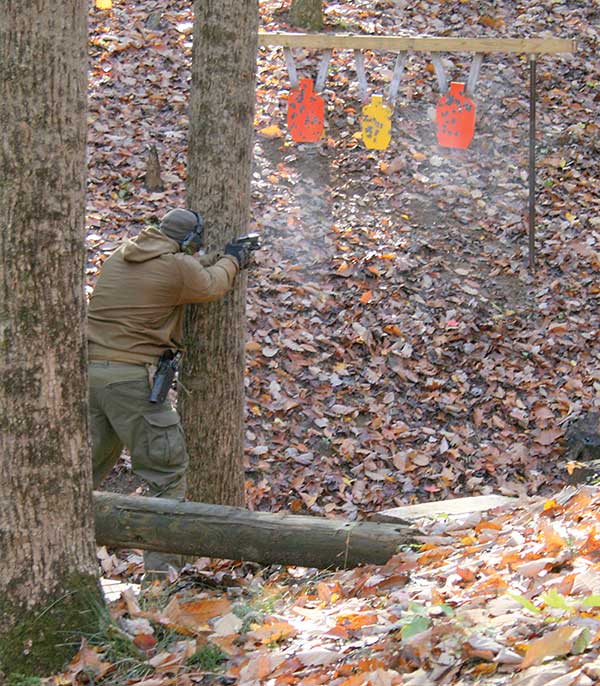
Perfectly flat, known-distance ranges with static targets can’t compare to the experience of live-fire individual and team training while negotiating a hostile gauntlet with an integrated obstacle course consisting of a 40-foot tri-level rope and ladder ascending and descending tower, walls, doorways, windows, and natural obstacles over irregular and rugged terrain features. Tim and the other instructors at the complex are fond of saying, “If you can fight effectively here, you can do it anywhere.”
RUSTIC RIDGE LUDUS
Combatics is complemented by its neighbor Rustic Ridge Ludus, which conducts rifle and pistol classes on a square and known-distance range under the mentorship of former DEA FAST Commander Carson Ulrich.
Carson and Tim share decades of experience as operators and trainers. Ludus, for you lovers of Latin, can mean “play, game, sport, or training.” However, Carson and Tim had Ludus Magnus and Ludus Dacicus more in mind—two famous gladiator schools in ancient Rome.
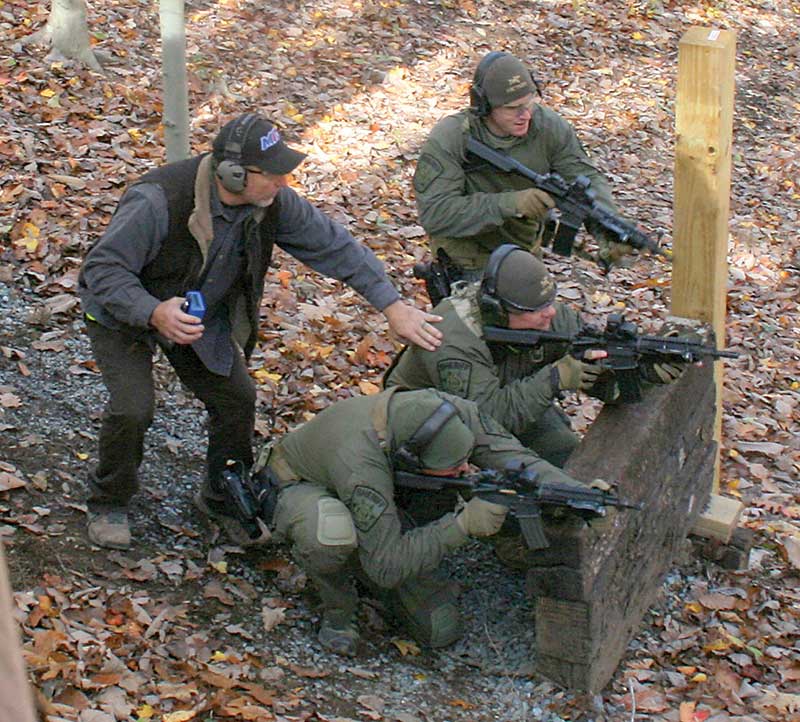
Carson is the only agent in federal law enforcement history to receive the Department of Justice’s highest award, the Award for Valor, twice. He earned the first medal while on counter-cocaine operations in Bolivia and the second for actions in Afghanistan.
In addition to the training and test facilities, Carson and Tim both consult for TV shows and movies and provide investigative services for documentarians such as National Geographic, where they appear often on screen or in the media as subject-matter experts.
As if that weren’t enough, Tim and his mechanical engineer son Josh have designed, developed, and manufactured a unique hostage rescue/barricade assault vehicle, the ARES (Articulating Rapid Entry System), which recently debuted at the MILPOL show in Paris.
CHARLES COUNTY EST
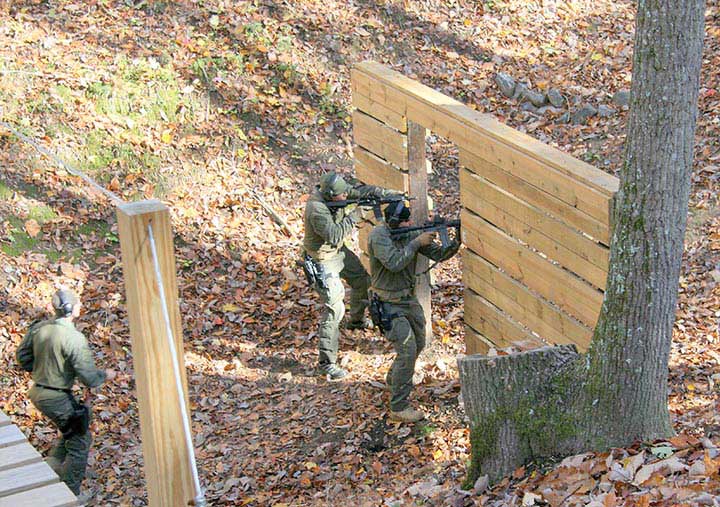
Our Virginia autumn weather turned cold and windy early in the season, but members of the Charles County (Maryland) Emergency Services Team (EST) and I hardly noticed because of Combatics’ unique training complex and the warmth between iterations provided by two roaring bonfires.
With few breaks, these well-trained and equipped deputies charged up, under, around, and through myriad obstacles while engaging distant and close-quarters bullet-resistant steel targets with well-aimed pistol and rifle fire. When operators were faced with close-in threats, frangible ammunition was employed.
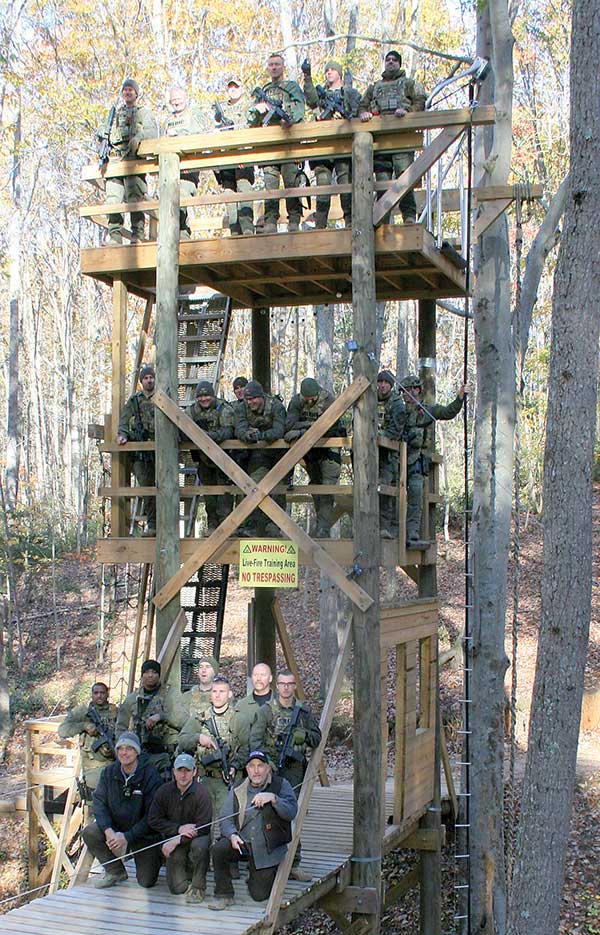
The foliated draw echoed with rattle battle for several hours as the men and their equipment were tested in what could have been the pursuit of an escaped felon, an assault on a remote terrorist training camp, or a search for an outdoor-oriented kidnapper who, once contacted, resists arrest.
Charles County Sheriff’s Office (CCSO) Lieutenant Bob Kiesel, a strong supporter of his personnel, advised that an appreciable amount of Charles County is rural.
Also present just in case was CCSO Tactical Emergency Medical Services Chief John Filer, whose paramedics are closely associated with the Emergency Services Team. Some members are sworn police officers and armed. This was the team’s and associated personnel’s second visit to the Combatics facility. They value its inoculation of stress while exercising their collective skills for building team cohesion.
Combatics has several specialist instructors who serve on an as-needed basis. For this group, Tim Clemente was assisted by former LAPD and Simi Valley, California police officer Tom Olmer.
DRONE COVERAGE
To record the action, FAA certified UAS pilot Master Corporal Joe Piazza flew one of several video-camera-equipped drones over the course of fire. He advised that they had five qualified “pilots” and that Alaris, a Maryland-based technology company, helped start the program and provided initial training.
The drones have become invaluable and have been used on many EST callouts and raids. In the Combatics scenarios run this day, the FLIR-equipped drone performed forward reconnaissance and added another dimension to the ground forces’ search capabilities. One drone, the Mavic, is small and quiet enough to fly indoors.
EXCELLENT EQUIPMENT
Thanks to the strong support of Charles County Sheriff Troy D. Berry, the team is well equipped, despite not being a full-time unit. Last year, they handled 90 call-outs and are on track to finish well ahead of that number this year. Each officer is assigned an SUV with lockable and bolted-in containers that hold weapons, ammunition, and accompanying tactical equipment.
A decentralized team, CCSO members perform their normal enforcement duties but are on call for spontaneous team assignments. For preplanned raids and warrant service, all shifts can be mustered. Tactical uniforms consist of Crye Precision G3 trousers, Ops Core ballistic helmet, and Cage plate carrier. A Safariland ALS holster is mounted on High Speed Gear’s Battle Belt with magazine pouches and other useful accessories. The holsters contain .40-caliber S&W M&P2.0 pistols with Streamlight TLR-1 HL. Federal’s 165-grain JHP is their duty round.
First-class SBRs in 5.56x45mm consist of Colt’s lowers and Bravo Company upper receivers. They are topped with EOTech optics and augmented with the same Streamlight as the pistol. Feeding is via Magpul 30-round magazines. One-in-seven twist barrels stabilize Federal’s 77-grain OTM bullet. Finnish SAKO TRG sniper rifles topped with Burris glass and digesting Federal’s 165-grain BTHP are the team’s choice for targets beyond the capabilities of the 11.5-inch barreled SBRs.
INDIVIDUAL EVENT
The day consisted of four timed events that involved intra-team competitions, giving added pressure to move and shoot rapidly and accurately. After a walk-through and safety briefing by Tim Clemente, the deputies were afforded a warmup period fired from the lower deck or bridge of the 40-foot multi-purpose tower.
The initial event involved the individual pistol-armed operator. As deputies maneuvered uphill, heart rates went sky high and uniforms became sweat soaked. This was probably the most stressful of the day’s activities, because the individual performances occurred in front of an encouraging, but very vocal, audience. The concerted yelling was occasionally almost as loud as the gunfire.
Some highly competitive deputies were not satisfied with their scores and were given an opportunity to run and gun it again. Their fixed-sight M&Ps were zeroed for 25 yards, but many of the shots were beyond that distance. Some operators required several shots to hit the more difficult targets and some Kentucky windage was required to complete many of the scenarios.
TEAM EVENTS
With little or no break, event two involved two-man handgun teams. Oral and non-verbal communication between the men was critical, and during movement, Position SUL was employed to establish muzzle control. I watched and did not catch any deputy moving with finger on trigger. When only one piece of vertical cover was available, the two-man team adopted low/high shooting stances to bring both pistols to bear on the simulated threat.
Individual runs with carbines resulted in one shot, one kill outcomes with their reflex sights. The SBR’s shorter sight radius is of no consequence with the EOTech optic. It got more interesting when two-man teams with carbine and pistol rolled on the course. Communication and muzzle control were again critical and, to a man, long guns were placed on safe during movement.
For the grand finale, three-man teams in battle dress attacked the course from the right flank’s ridgeline. Use of cover was emphasized and shooting on the move when crossing open areas. At this juncture, some targets were at the maximum effective range of the SBRs, but they too fell under the fusillade produced by the trio of operators. The heavier bullets retained enough of their energy to decisively take down distant Pepper Poppers. Resetting the targets was a workout in itself.
When the smoke cleared and the sweat dried somewhat, Sniper Supervisor Sergeant Matt Thompson won the individual officer pistol assault competition in 62 seconds, establishing a new Combatics course record in the process.
At the end of an action-packed day, Tim instructed the deputies in ascending by caving ladder and descending via fast rope from the 40-foot tower. For many, this was the first time they had a chance to use these standard Special Ops tools. Once the first-time anxiety was overcome, the men couldn’t be stopped from repeating the experiences.
I was very impressed with the CCSO team’s cohesion, fitness, and shooting skills. In addition, having dedicated bosses who were present the entire time illustrated the positive support the men receive from their administration.
Professional teams aren’t the only ones who can take advantage of Combatics’ unique combat complex. Training is also offered to individuals and private citizens.
SOURCE
COMBATICS TRAINING
(540) 845-5169
www.combattactics.training

